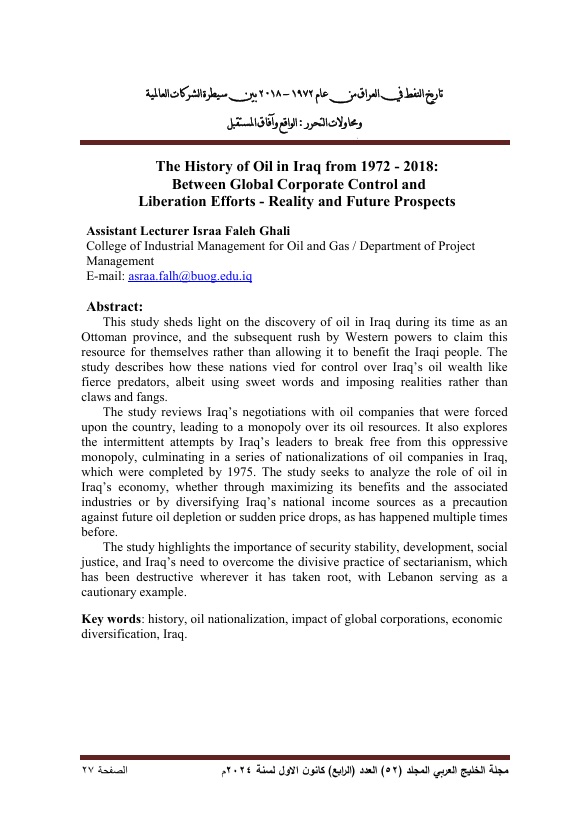The History of Oil in Iraq from 1972 - 2018: Between Global Corporate Control and Liberation Efforts - Reality and Future Prospects
Keywords:
history, oil nationalization, impact of global corporations, economic diversification, IraqAbstract
This study sheds light on the discovery of oil in Iraq during its time as an Ottoman province, and the subsequent rush by Western powers to claim this resource for themselves rather than allowing it to benefit the Iraqi people. The study describes how these nations vied for control over Iraq’s oil wealth like fierce predators, albeit using sweet words and imposing realities rather than claws and fangs.
The study reviews Iraq’s negotiations with oil companies that were forced upon the country, leading to a monopoly over its oil resources. It also explores the intermittent attempts by Iraq’s leaders to break free from this oppressive monopoly, culminating in a series of nationalizations of oil companies in Iraq, which were completed by 1975. The study seeks to analyze the role of oil in Iraq’s economy, whether through maximizing its benefits and the associated industries or by diversifying Iraq’s national income sources as a precaution against future oil depletion or sudden price drops, as has happened multiple times before.
The study highlights the importance of security stability, development, social justice, and Iraq’s need to overcome the divisive practice of sectarianism, which has been destructive wherever it has taken root, with Lebanon serving as a cautionary example




